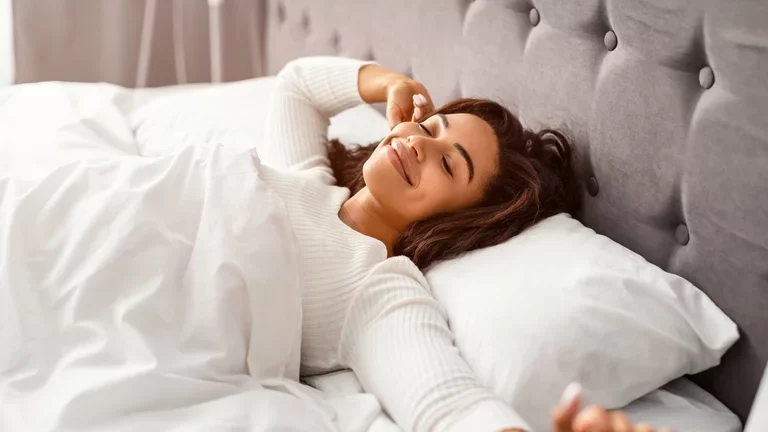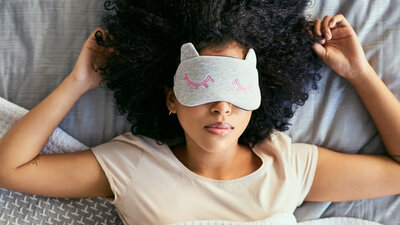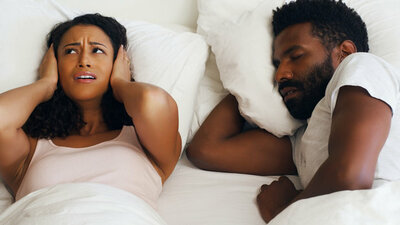Even if your sleep apnea symptoms are under control, falling asleep and staying asleep can be challenging. Luckily, small changes to your daily routine, sleep environment, and diet can make a huge difference.
Here are 13 simple tips to help you fall asleep sooner and get a more restful sleep:
Stay on Schedule: Regular sleep patterns are important. Ensure you get up and go to bed at the same time every day (weekends included).
Be Careful with Naps: Naps are helpful for some, but less helpful for others. If your sleep is disturbed at night, try cutting out your nap. If you do nap, limit to no more than 30 minutes. A short nap when appropriate can help with mood, alertness, and performance.
Exercise Everyday: Being active during the day will improve your sleep at night. But avoid vigorous exercise less than 3 hours before bedtime.
Avoid Stimulants: Caffeine, tobacco and alcohol all have the potential to disturb your sleep. This includes coffee, tea, soda and other stimulants. Stimulants taken too close to sleep cause it to be disturbed and lighter than usual. Alcohol can, in small doses, make you sleepy but then disturbs sleep later in the night.
Healthy Meals–Helpful Snacking: Having healthy meals is important for your health and your sleep. As well, a light snack and for some, warm milk in the evening may help you fall asleep easier.
Unwind Before Bedtime: Although it may be difficult, try to leave your stress at the bedroom door and begin relaxing long before bedtime. For some, a warm bath 2 hours before bedtime can be helpful.
Keep Your Bedroom Cool, Quiet and Dark: The right atmosphere can make a huge difference. Try earplugs, eye shades or a white noise machine to help mask background sounds.
Bedtime Clothing: Wear loose-fitting nightclothes and ensure that you’re as comfortable as possible.
Keep Technology out of the Bedroom: From phones to e-readers and tablets, limit technology prior to bedtime, especially the hour before. The Blue Light from these and other devices can affect your natural Melatonin levels and interrupt your sleep, telling your body to stay awake and alert.
Associate Your Bedroom with Sleep: Don’t turn your bedroom into an office or activity room. Keep your bedroom for sleep, sex, and relaxation; leave your daytime stresses and dilemmas at the door.
Eliminate Distractions: Try to eliminate distractions in the bedroom. If you catch yourself watching the clock, turn it around. If your pets keep you up, keep them in another room. If your phone vibrates, turn it off.
Sleep Timing: It may seem simple, but go to bed when you feel sleepy. Don’t put it off with the hope of becoming sleepier, and don’t try to force it if you’re wide awake. Be Patient: If lying in bed awake makes you restless or irritable, leave the bedroom and do something relaxing until you feel sleepier (sleepy), then (go back to bed and) try again. Getting yourself worked up isn’t the answer. (don’t like/need this last sentence; prefer the last sentence in the attached)
Consult Your Doctor about Sleeping Pills or over-the-counter Sleep Aids: As with all medications, sleeping pills have side effects and risks. If you think that they may be the answer, consult your physician or nurse practitioner about your options.
If you struggle with sleep, you’re not alone. The key is to actively address the issue and do everything you can to be restful and relaxed at bedtime.
If you are having difficulty with this, or you think you may have a sleep disorder, seek help from your Healthcare Practitioner.



